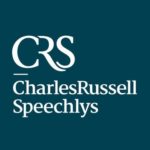Continue reading "Wills: Documentary evidence trumps witness testimony"
Wills: Documentary evidence trumps witness testimony

The claimant was a distant relative of the late Mr Al-Hasib Al Mahmood (the deceased) and had become increasingly close with the deceased in the period since the claimant had moved to England. The claimant, and the claimant’s wife, had provided a great deal of care and assistance to the deceased and the deceased’s wife. Eventually, the claimant had moved in with the deceased and his wife.
The claimant alleged that on two separate occasions, five days apart from one another, the deceased performed acts amounting to donationes mortis causa, in favour of the claimant, regard...
The deceased died on 21 June 2010. His will, dated 6 March 1998, gave a life interest in the matrimonial home to his second wife, with remainders to the claimant and his brother, who were children of the deceased’s first marriage. A codicil, dated 26 December 2002, replaced the life interest with an absolute gift to the second wife. The deceased’s second wife obtained probate, relying on a copy of the codicil as the original could not be found, and administered the estate. The second wife made a will by which 70% of her residuary estate went to her sister, and 30% to the claimant’s three...
On 18 February 2011, Ray McElroy passed away, survived by his wife of five months, Lynne, and his brother, Paul. Prior to his marriage to Lynne, Ray had made a will pursuant to which Paul was his sole beneficiary. After marrying Lynne, Ray did not execute a further will. On 24 August 2011, Lynne was granted letters of administration in respect of Ray’s estate, having sworn that Ray was domiciled in England and Wales and was intestate. Lynne proceeded to administer Ray’s estate and distribute the assets, including selling a property within the estate in part exchange for a new residence i...
In 2007, the claimant gave her father (Ray) a sum of £150,000. The payment was a contribution towards a house (the property) that Ray intended to purchase with his wife, the first defendant.
The claimant alleged an agreement by which, in exchange for the payment of £150,000, Ray would leave his half-share of the property to the claimant and her brother.
The purchase of the property was completed using a TP1 transfer form. The form was signed by the third-party transferor and the box was ticked providing for the transferees, Ray and the first defendant, to hold the property ...
Angela and John Dunbabin purchased a property known as 29 Beverley Place, Springfield, Milton Keynes (the property) in 1983. The conveyance was silent as to the beneficial interests though it contained a declaration that either of the purchasers could give a valid receipt for capital money arising on a disposition of land. With the assistance of Terry Oldfield, a professional will writer, they executed ‘mirror’ wills giving their own share of the property to trustees upon trust for sale and to hold the net rents and profits and the net income from the sale proceeds in trust for the other...
The defendants were the executors of the deceased’s last will dated 20 May 2009 (the 2009 will). The claimant, who was the stepdaughter of the deceased, challenged the 2009 will. There were seven issues at trial:

Continue reading "Wills: Documentary evidence trumps witness testimony"